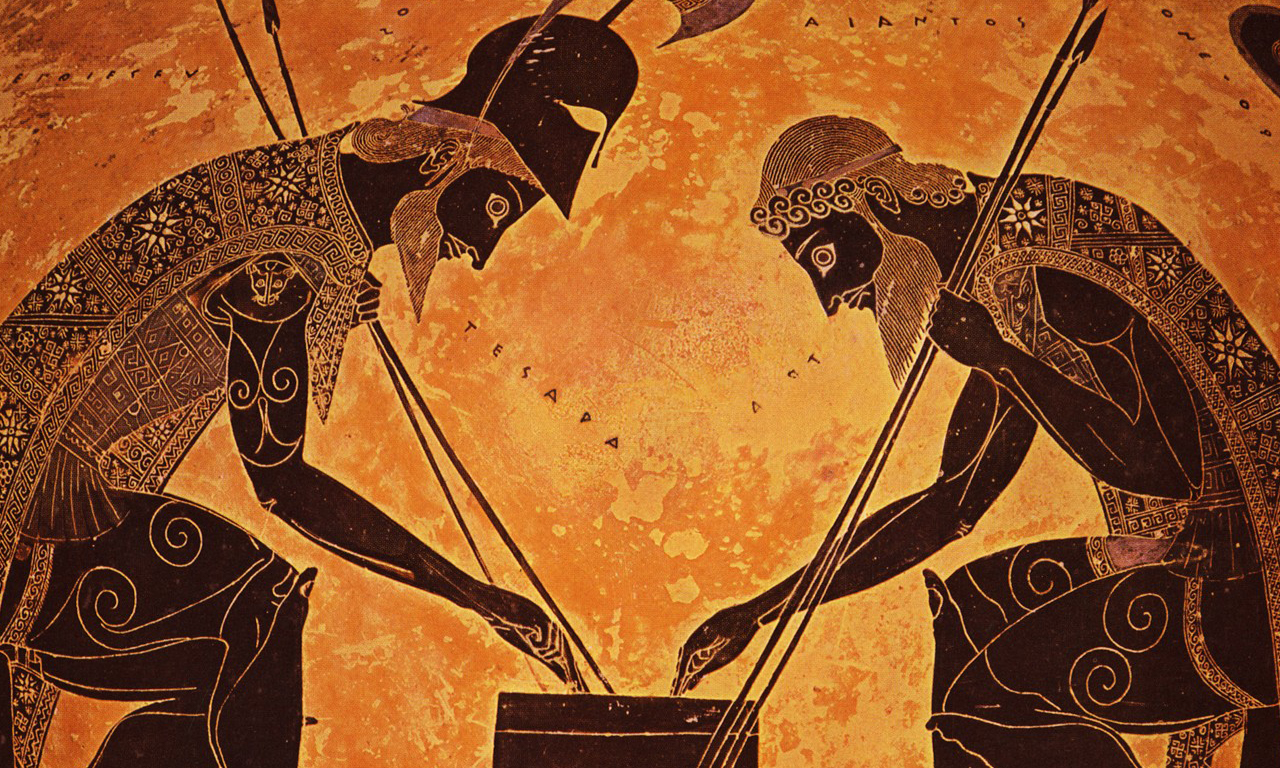
TL;DR Summary:
- Post-Iliad Trojan War (Events leading up to and following the Fall of Troy).
- Character-centric Nation Roleplay
- Rules for optional randomness and simple way for resolving conflicts.
- Mythological Greece setting with hybrid influences from Bronze, Dark, Archaic, and Classical periods of Greece.
- Players control a single Greek City-State (preferably original)
In Character Info:
Greece has been waging an almost ten-year war against Troy for the sake of a single act of adultery, spilling the blood of countless Greeks and Trojans alike. Even after the death of Hector, Troy’s towering guardian, the war still stumbled on. Nevertheless, Troy is destined to fall, as it is decreed by the Olympians, and the Greeks led under Agamemnon’s banner are fated to fulfill this destiny. However, be wary of your actions, as the gods still uphold their divine laws, even though some of them spill their hatred onto Troy. For even if the battle is won, without the favor of the gods, the journey home might turn out to be even far more perilous than the war at Troy.
The war sparked by a single woman is not the only concern. While the men are away, fighting for the wife of Menelaus, no one knows what is happening on the home front. Will the leaders of the Achaeans return home, being welcomed with open arms or with an axe to the back? Will the land to which these warriors return be the same as it was before, or will the brave men of Greece have to endure countless more trials beyond those that were fought at the walls of Troy?
Out of Character Info:
This nation roleplay is intended to explore the events that happen immediately afterwards the Iliad. Since the warfare in the Iliadand the Odyssey is individualistic, this roleplay will focus more on distinguished individuals winning glory in battle. Even with that said, the “forgotten” heroes of these Greek epics, the common soldier, should not be neglected either. Therefore, each player will be responsible for a single, original Greek city-state, along with its leaders, warriors, and subjects.
I intend to use Mazes and Minotaurs as a guide (e.g. character creation); however, I would like to point out that it will only be that, a guide. It will only be used for either any player(s) who want to add some randomness into their posts or for solving conflicts when a solution cannot be determined between two or more players. Storytelling will be held above these “rules”, unless they are needed due to arguments, etc.
Finally, a quick note on mythology. If you desire Greek Mythology to fit nicely together like a comic book canon, you will be sorely disappointed. However, this gives us greater freedom with the depiction of the Homeric society. This Nation RPG does not intent to mimic the historical Mycenaeans, as even the Greeks who listened to these tales and gazed upon the old settlements of this era were mystified at foreignness of the Mycenaeans. Yet, the Greeks still identified with these “strangers”. Therefore, this Homeric culture will be a hybrid of pre-Hellenistic culture (i.e. Alexander the Greek and on), allowing us to both reconcile the contradicting similarity and foreignness of the Mycenaean Greeks.
I intend to use Mazes and Minotaurs as a guide (e.g. character creation); however, I would like to point out that it will only be that, a guide. It will only be used for either any player(s) who want to add some randomness into their posts or for solving conflicts when a solution cannot be determined between two or more players. Storytelling will be held above these “rules”, unless they are needed due to arguments, etc.
Finally, a quick note on mythology. If you desire Greek Mythology to fit nicely together like a comic book canon, you will be sorely disappointed. However, this gives us greater freedom with the depiction of the Homeric society. This Nation RPG does not intent to mimic the historical Mycenaeans, as even the Greeks who listened to these tales and gazed upon the old settlements of this era were mystified at foreignness of the Mycenaeans. Yet, the Greeks still identified with these “strangers”. Therefore, this Homeric culture will be a hybrid of pre-Hellenistic culture (i.e. Alexander the Greek and on), allowing us to both reconcile the contradicting similarity and foreignness of the Mycenaean Greeks.
Nation Sheets: